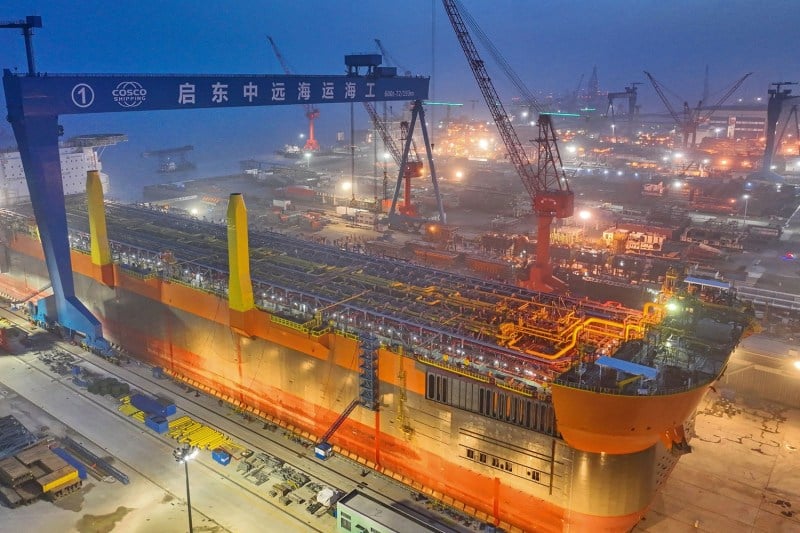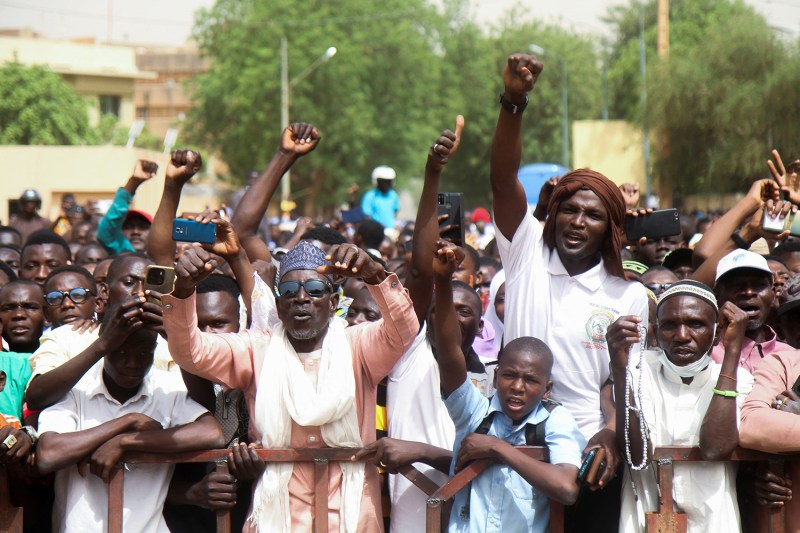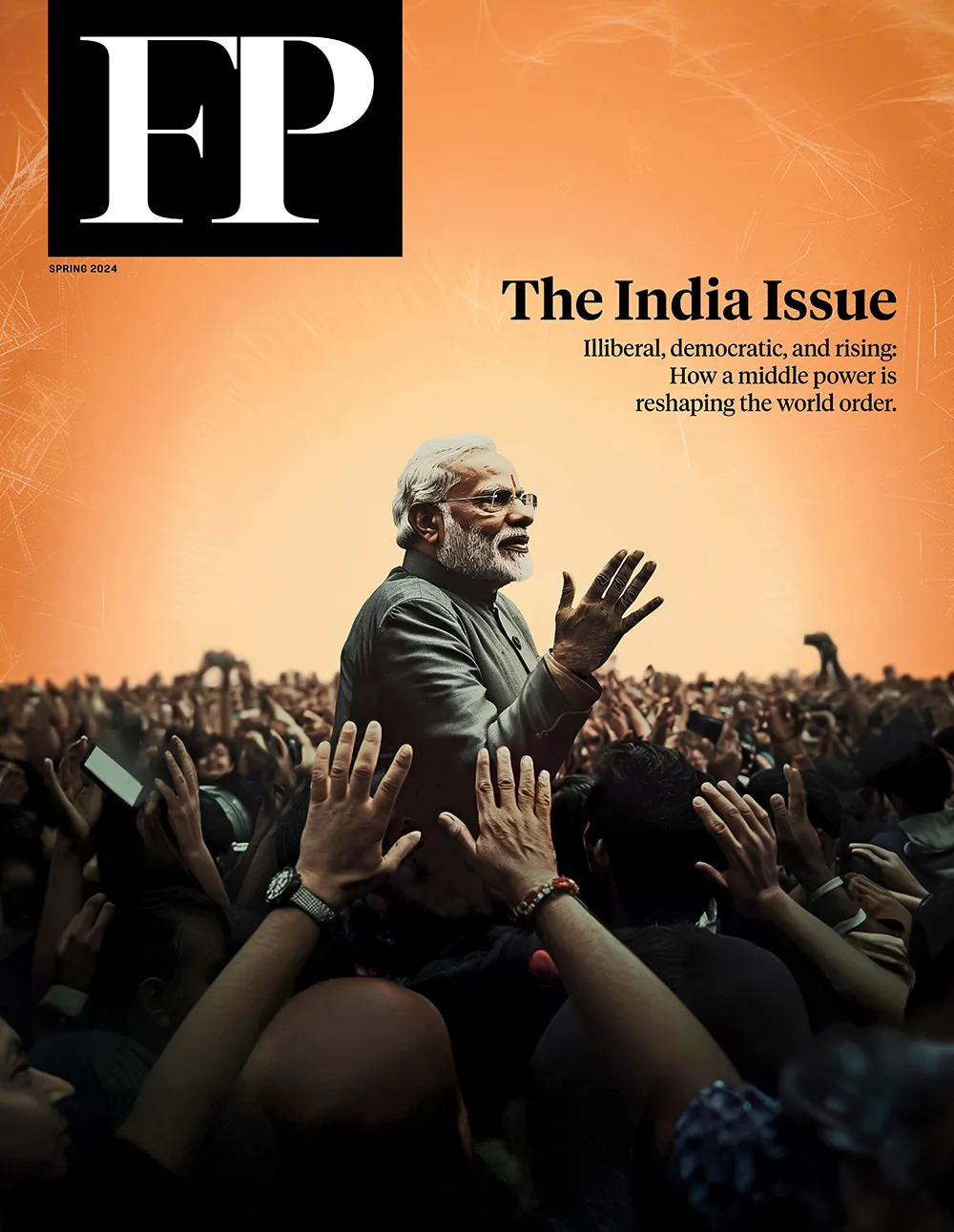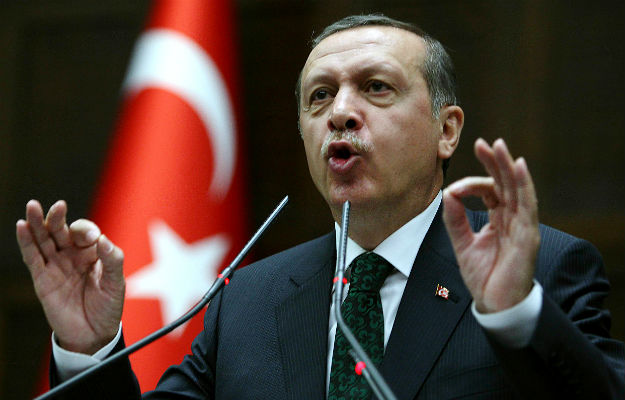Protocols of the Interest Rate Lobby
Whether it's shadowy bankers, America, Israel, or Iran, there's no end to the conspiracy theories spun by the Turkish prime minister's supporters -- and their opponents.
ISTANBUL — Thick, boisterous crowds poured into Kazlicesme, a neighborhood miles away from Istanbul's city center, where Turkey's prime minister, Recep Tayyip Erdogan, was due to deliver a speech at a rally on Sunday, June 16. Three weeks into a wave of anti-government demonstrations and riots that began as a small sit-in against the planned demolition of a small public park and quickly swelled into the biggest challenge to Erdogan's rule in years, the rally, dubbed "Respect for the National Will," was meant as a show of strength and defiance by the prime minister's supporters. To judge by the numbers alone, it did the job. By the time Erdogan began speaking, the crowds had reached an estimated 300,000. Pro-government media kindly put the figure at over a million.
ISTANBUL — Thick, boisterous crowds poured into Kazlicesme, a neighborhood miles away from Istanbul’s city center, where Turkey’s prime minister, Recep Tayyip Erdogan, was due to deliver a speech at a rally on Sunday, June 16. Three weeks into a wave of anti-government demonstrations and riots that began as a small sit-in against the planned demolition of a small public park and quickly swelled into the biggest challenge to Erdogan’s rule in years, the rally, dubbed "Respect for the National Will," was meant as a show of strength and defiance by the prime minister’s supporters. To judge by the numbers alone, it did the job. By the time Erdogan began speaking, the crowds had reached an estimated 300,000. Pro-government media kindly put the figure at over a million.
Near Kennedy Avenue by the shore of the Marmara Sea, where the Turkish leader’s supporters had been ferried in by hundreds of specially enlisted municipal buses, Kemal Karabacak, a craftsman, marched toward the rally site, flanked by his sister Emine and two neighbors. All four had arrived from Eyup, a conservative neighborhood best known as the burial place of one of the Prophet Muhammad’s companions. All had donned flat paper facemasks featuring the image of a smiling Erdogan.
Kemal said of the protesters half a city away, "These groups, they’re completely marginal, they have no support from their own citizens. They are our brothers and sisters, but they should understand what they’re doing is wrong."
Emine, clad in a flower-patterned blue headscarf and turquoise overcoat, nodded excitedly. "They’re provocateurs," she said. "We love life, we love friendship and brotherhood. They love blood, separatism, and military coups." If the protests turned out to be the work of foreign powers, as she suspected, "those countries trying to divide us will pay the price, just as they did in World War I."
Her friend, Gulcan Bayram, weighed in. "I’m angry with the international media," she said. She wore the Erdogan mask like a visor; a pair of dark sunglasses shielded her eyes from the searing afternoon sun. "The things they write, they distort, they exaggerate, as if people were being oppressed, as if the government was going to fall." She grew more agitated, her eyebrows rising high above the sunglasses. "It’s all a lie, and I don’t want anyone to believe it," she said.
In Turkey, conspiracy theories are to politics what kebabs and baklava are to an evening meal. That goes for supporters and opponents of Erdogan alike, often with the same targets in mind. Of the dozens of Gezi protesters I talked to over the past weeks, many earnestly claimed that the United States had parachuted Erdogan and his party into power in 2002, that the Obama administration retained a Pennsylvania-based Turkish cleric, Fethullah Gulen, in order to bolster its aims in the Middle East, and that it and the European Union continued to support the militants of the Kurdistan Workers’ Party, or PKK, in a bid to divide Turkey.
The tendency to cry "plot" is as old as the Turkish Republic itself, understandable in a part of the world where the West’s armies and intelligence agencies have intervened on a regular basis — particularly so in a country that faced the very real prospect of Allied partition after World War I. Well into the 1990s, rare was the national crisis that Turkish politicians and army generals refused to blame on Greece, the United States, the EU, the Armenian diaspora, or Turkey’s own Kurdish minority.
Refreshingly, during Erdogan’s first decade in power, the conspiracy reflex appeared to be ebbing. The economy boomed, the prime minister’s Justice and Development Party (AKP) ruled uncontested, confidence was sky-high, and relations with neighbors were better than ever. Even if it continued to sense domestic plots around every corner, the AKP, with a few notable exceptions, saw no use in banging on about global ones.
That era ended with the Gezi Park protests this month. With the government still very popular but increasingly on the defensive, and with Erdogan raising the temperature with every speech, conspiracy theories have once again boiled to the surface. The prime minister and his allies in government and the media, rather than acknowledge the depth of the resentment fueled by some of their policies and by the scale of the police crackdown, have begun pinning the popular unrest on a cabal of international actors.
Since the protests erupted in late May, Erdogan has repeatedly lashed out at a wide range of alleged culprits, including Israel ("Those against whom we said ‘one minute’ are now delighted"), Western financiers ("We will make the necessary sharp responses against the interest-rate lobby"), and Twitter ("a scourge to society"). Lately, he has taken to slamming the foreign press, which he accuses of misrepresenting the protests. "If the international media wants a picture of Turkey, here is your picture," he said at the June 16 rally, pointing to the sea of people massed around the stage from which he spoke. "CNN, Reuters, BBC, hide this picture too, and go on with your lies. Turkey is not a country on which international media institutions can conduct operations." A week later, he alleged that the same forces that had sparked the protests across Turkey were at work in Brazil, where widespread protests had also broken out in several cities. "It is the same game, the same trap, the same goal."
Others have dug even deeper. During a TV appearance on June 5, Yigit Bulut, a pro-government commentator, accused Lufthansa, Germany’s national air carrier, of conspiring to prevent Erdogan from building a new airport in Istanbul. "The airport would divert a hundred million passengers from Germany to Turkey," Bulut reasoned. "One of the protesters’ demands is to stop it from going ahead, so it is obvious that Germany has its finger in the pie." Appearing on the same program, Bulut later likened the protests themselves to the so-called "post-modern coup" that toppled the AKP’s predecessor, the Welfare Party, in 1997.
A few days later, Sedat Laciner, a prominent academic, opined in a newspaper column that the West was using the protesters to get even with Turkey. "Turkey had criticized NATO, the Security Council, the EU, Germany, the United States, and Israel," he wrote. "This was not easy to swallow. The biggest mistake Ankara made was to think this would remain unanswered."
On June 16, AKP spokesperson Huseyin Celik pointed the finger at the American Enterprise Institute, the Washington-based conservative think tank which, he alleged, had drawn up scenarios for a possible "Istanbul rebellion" during a meeting in February with Turkish activists. A newspaper run by followers of Fethullah Gulen, an Erdogan ally, subsequently reported that Turkish police had arrested "a dozen Iranian agents" in connection with the anti-government protests. The Islamic Republic, one of its columnists concluded (unwittingly making bedfellows of Iranian fundamentalists and American neocons), had been caught red-handed trying "to derail an environmental protest and try to turn it into social upheaval."
Another Gulen outlet, Samanyolu TV, took a generous spoonful of some of the conspiracy theories floated by the AKP and its supporters, added the government’s narrative of the protests, and whisked both into an episode of Ekip 1, one of the station’s soap operas. Onscreen, it went a bit like this: a calm and docile police force meets a group of violent, confused protesters; a foreign agent lurks amid an army of provocateurs; while an old auntie’s trust in the state can survive any amount of inhaled tear gas.
Unfortunately, the conspiracy theory narratives have progressed beyond the sound-bite stage: they’re being acted upon. In the past 10 days alone, the ministry of interior has announced that it would begin work on a law allowing it to investigate and prosecute those who publish "false and provocative" posts on the Internet; the national intelligence agency has launched an official investigation into "foreign links" to the Gezi protests; and the mayor of Ankara has taken to Twitter to launch a hashtag campaign against a BBC journalist, Selin Girit, whom he accuses, on the basis of a quote that wasn’t even her own, of being a British agent. Finally, Turkey’s Capital Markets Board has launched a probe into brokerage transactions concluded at the height of the protests — presumably to expose, once and for all, both the identity and the secret machinations of the "interest rate" lobby.
The plot rumors appear to be falling on fertile ground. At the June 16 rally, Adem Demirel, 62, pulled me aside after I finished speaking to Kemal Karabacak and his sister. "Our people have to know," he said, speaking hurriedly, the words ramming into each other like cars in a frenzied pile-up. "They’re giving agents a million dollars each to stir things up here, and in the region." It was only a month ago, he said, that Turkey had paid off the last of its $23.5 billion debt to the International Monetary Fund. "We paid $1.5 billion in interest rates, and now we don’t want to pay any more interest. That’s what this whole fight is about."
More from Foreign Policy

Arab Countries Have Israel’s Back—for Their Own Sake
Last weekend’s security cooperation in the Middle East doesn’t indicate a new future for the region.

Forget About Chips—China Is Coming for Ships
Beijing’s grab for hegemony in a critical sector follows a familiar playbook.

‘The Regime’ Misunderstands Autocracy
HBO’s new miniseries displays an undeniably American nonchalance toward power.

Washington’s Failed Africa Policy Needs a Reset
Instead of trying to put out security fires, U.S. policy should focus on governance and growth.




